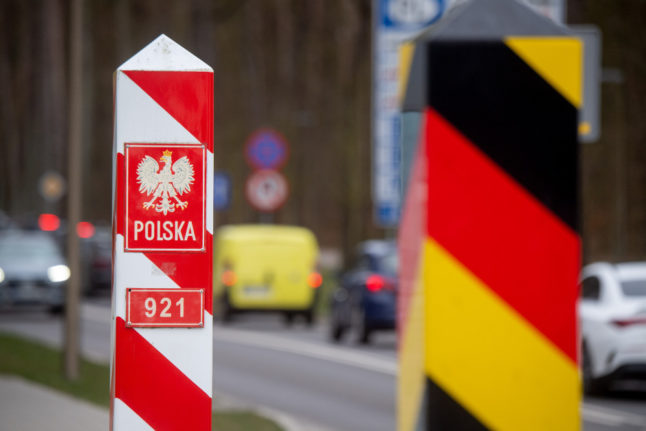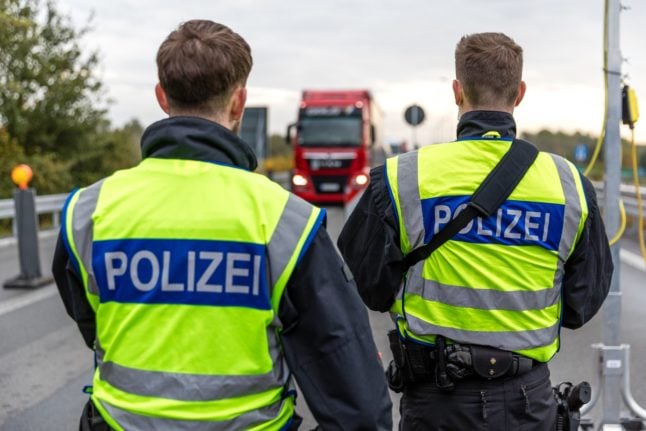In the first four months of 2023, some 101,981 asylum applications were filed in Germany — an increase of 78 percent compared to the same period in 2022.
Almost 218,000 applications were filed in Germany last year — the highest number since 2015-16, with the largest number of newcomers hailing from war-torn Syria and Afghanistan, followed by Turkey and Iraq.
In addition, more than a million people arrived from Ukraine.
READ ALSO: Germany records almost a million Ukrainian refugees
Regional leaders have long been demanding more help and money to cope with the new arrivals, with many being forced to build temporary shelters.
To help ease the pressure on local authorities, the government is considering tightening border controls, according to a draft agreement seen by AFP.
“Depending on the situation, the government will… extend the existing border security concept with Austria to other borders in Germany,” it said.
Germany’s border with Austria alone currently applies fixed border controls apply to everyone passing through. Germany also borders Belgium, the Czech Republic, Denmark, France, Luxembourg, the Netherlands, Poland and Switzerland.
The draft agreement also says that “to return persons who are obliged to leave the country to their countries of origin, it is necessary to improve cooperation with numerous countries of origin”.
The pro-business FDP party, part of Germany’s coalition government alongside Scholz’s SPD and the Greens, has called for the list of “safe” countries of origin to be expanded.
The document also says the government supports strengthening controls at the EU’s external borders, including the possibility of permanent border controls with other EU countries.
According to the Bild daily, a more recent version of the paper also includes proposals to speed up asylum applications and the deportation of offenders.
The recent influx of asylum seekers has coincided with a rise in support for the far-right AfD party, especially in eastern Germany.
The anti-migrant party is currently polling at around 15 percent, compared with 10.3 percent in the last general election in 2021.
READ ALSO: Why Germany is overhauling immigration laws




 Please whitelist us to continue reading.
Please whitelist us to continue reading.
Member comments